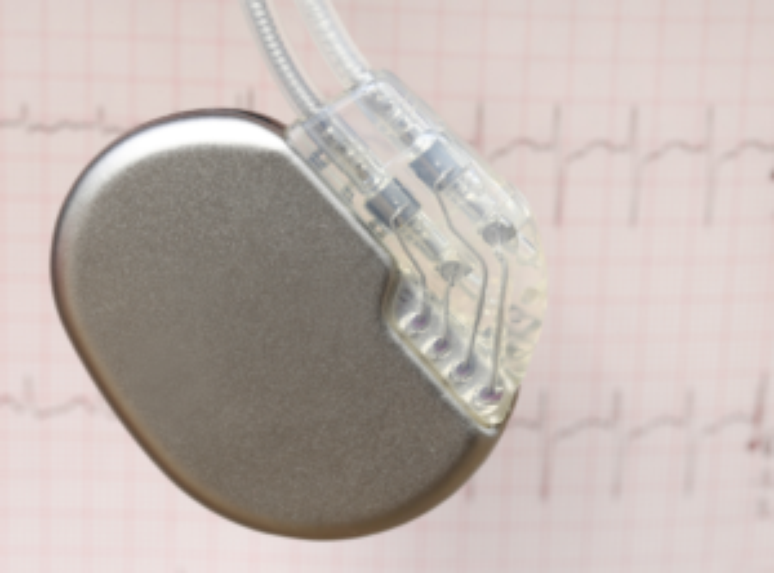Heart surgeon, Dr. Daniel Bartholo Hyppolito, provides information about pacemaker implantation and life after the procedure.
The pacemaker is a revolutionary device that regulates and monitors the heartbeat. The Department of Artificial Cardiac Pacing (DECA), which is part of the Brazilian Society of Cardiovascular Surgery (SBCCV), says there are more than 300,000 people living with the implanted device in Brazil. Also according to the DECA survey, approximately 49,000 devices are connected each year. For this reason, the number of implanted is growing every year. The World Census of Pacemakers and Defibrillators states that, in Brazil, there are 199 pacemaker implants per million Brazilians. With this scenario, it is important to help understand how such a complete device works, what are its specificities and how to live healthily with this device. To talk a little about this topic, the doctor specialized in Cardiovascular Surgery and Artificial Heart Stimulation, Daniel Bartholo Hyppolito, will bring some information on the life of patients after the pacemaker. Keep reading!
What are the recommended cases for pacemaker implantation?
Agree with the doctor. Daniel Bartholo Hyppolito, most cases in which a pacemaker implant is needed are due to bradyarrhythmias,
“These are arrhythmias characterized by a low heart rate, also known as a slow heartbeat.”
Bradyarrhythmia may be due to the aging of the electrical conduction system of the heart, but there are other causes as well, follow the list below:
- use of drugs that have a negative effect on heart rate;
- thyroid abnormalities;
- drug intoxication;
- heart attack;
- inflammatory and degenerative diseases with a concentrated action in the cardiac region;
- fetal heart malformation.
“Less frequent causes are some patients who have had cardiac arrest or who are at increased risk of cardiac arrest, in addition to cases selected for treatment of heart failure”comments the expert.
What are the recommendations after pacemaker implantation?
“The life of a pacemaker wearer is normal, pretty much the same as their life before receiving the pacemaker“, comments Dr. Daniel Bartholo Hyppolito. The device is made to generate an improvement in the patient, not worsen it. That is, practically everything you did before the implant can continue the same way, just with a few recommendations.
As with all surgeries, especially cardiac surgeries, there are some specific recommendations for the days, months, and years following the procedure. The doctor. Hyppolito leaves some recommendations for newcomers:
- in the first weeks sudden movements and efforts with the arms should be avoided, this recommendation prevents bleeding and misalignment of the components;
- follow the appointment schedule established by your doctor;
- for the rest of its life it is necessary to avoid magnetic fields and electric currents, as they can interfere with the functioning of the device.
The practice of sports and physical exercises should be assessed individually by the surgeon responsible for its implementation and follow-up. But, in general, it is possible to return to the practice of physical activities. After all, the beneficial movement of the body is part of the recommendations to prevent possible cardiovascular diseases and promote the health of the body. But you must be careful not to engage in activities that put the device and its components at risk of impact.
“Activities with a risk of local trauma, such as fighting or contact sports, can cause direct damage to the device”
, emphasizes the doctor. Resuming your personal routine can be done almost instantly for some activities, such as:
- walk;
- Go upstairs;
- take a bath;
- eat;
- get dressed;
- write;
- light;
- Use the computer.
The ones listed above can be done the day after pacemaker implant surgery. But you have to be cautious about exercising other aspects of your regular routine.
“For activities such as driving, household chores or sports activities, you should wait two to four weeks”
, as stated by Dr. Daniele Bartolo Ippolito.
What are the most frequent questions patients have after implantation?
Although cardiac pacing is older, permanent implantable pacemakers only began to be used in 1958, and still raise many questions among patients and families. For example, does cell phone use interfere with the operation of the device? Is it possible to go through metal detectors at airports and the like? How to have a normal life after the implant? Next, Dr. Daniel Bartholo Hyppolito lists some frequently asked questions found in the office.
- Are there any restrictions on medications?
There are no contraindications for the use of medications.
- What types of foods should be eaten?
There are no dietary restrictions for patients using this device. But it is recommended to follow a healthy lifestyle for every individual.
- How long does the implanted pacemaker last?
The pacemaker has a battery that will last a few years, usually between 6 and 12 years. What will determine the time it lasts is how much each patient will use the pacemaker, as there are more severe and less severe arrhythmias.
html[data-range=”xlarge”] figure image img.img-6f32fcbcdf9415e18e3e17eb18f0fd471rqthi2v { width: 774px; height: 573px; }HTML[data-range=”large”] figure image img.img-6f32fcbcdf9415e18e3e17eb18f0fd471rqthi2v { width: 548px; height: 406px; }HTML[data-range=”small”] figure figure img.img-6f32fcbcdf9415e18e3e17eb18f0fd471rqthi2v, html[data-range=”medium”] figure image img.img-6f32fcbcdf9415e18e3e17eb18f0fd471rqthi2v { width: 564px; height: 417px; }
Are there any routine tests that should be done to check that the pacemaker is working properly?
All pacemaker wearers (as well as defibrillators and resynchronizers) should be monitored regularly by an artificial cardiac pacing specialist. That is, regular consultations according to the medical indication.
“Evaluations must be done at least every six months and for life. In addition to being necessary to monitor the state of the battery, since it is an electronic device, the pacemaker can present malfunctions and rapprochements can be indicated “comments Dr. Hippolytus.
It should be noted that issues involving heart rate regulating devices are limited, as stated by heart surgeon Dr. Ippolito.
“Problems related to the pacemaker are rare, and most of the time the pacemaker wearer has some discomfort, this is not related to the device, but to another clinical problem, such as blood pressure changes or infections”
concludes the doctor.
*Dr. Daniel Bartholo Hyppolito – Specialist in Cardiovascular Surgery and Artificial Heart Stimulation
Source: Terra
Ben Stock is a lifestyle journalist and author at Gossipify. He writes about topics such as health, wellness, travel, food and home decor. He provides practical advice and inspiration to improve well-being, keeps readers up to date with latest lifestyle news and trends, known for his engaging writing style, in-depth analysis and unique perspectives.









